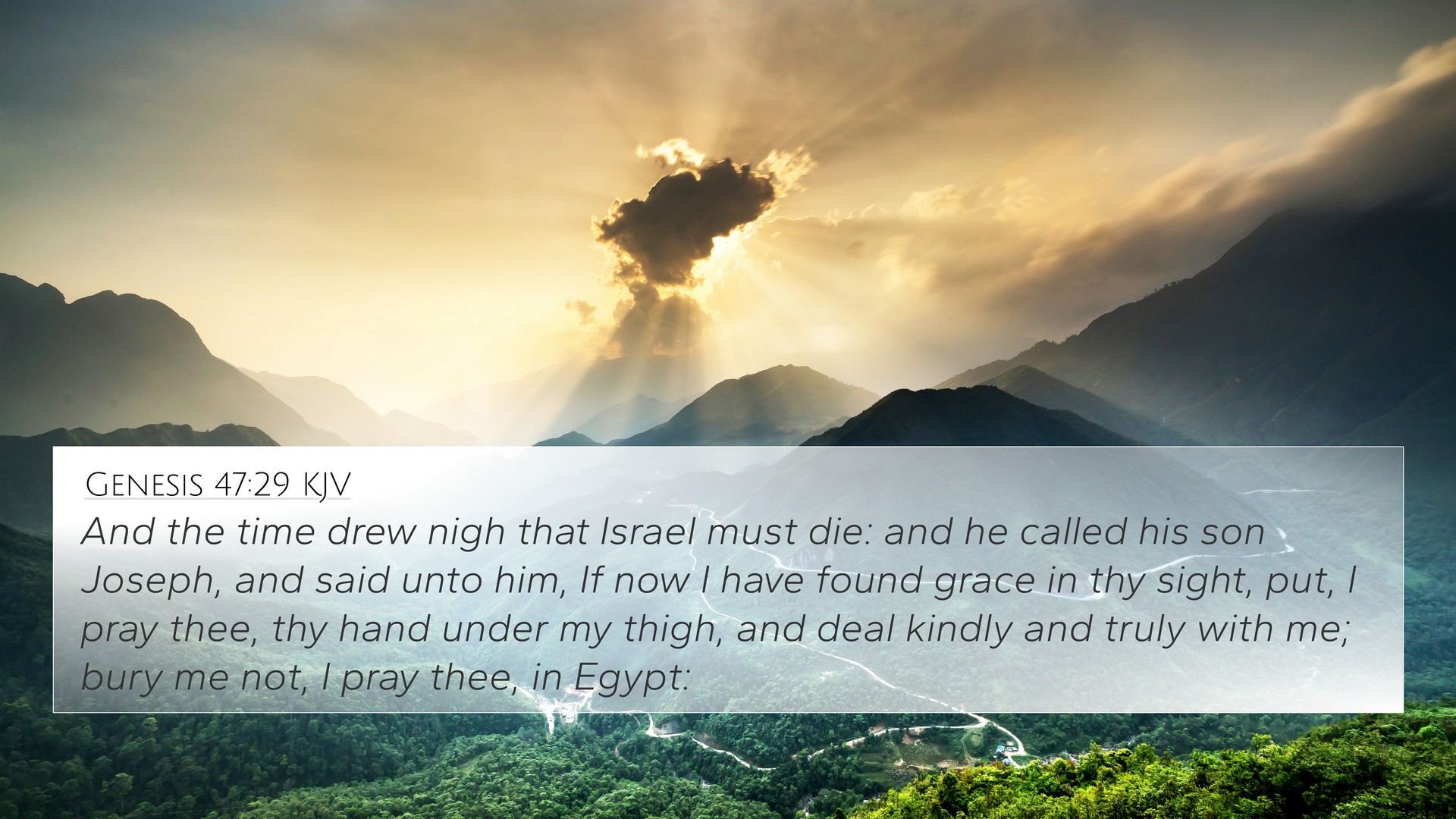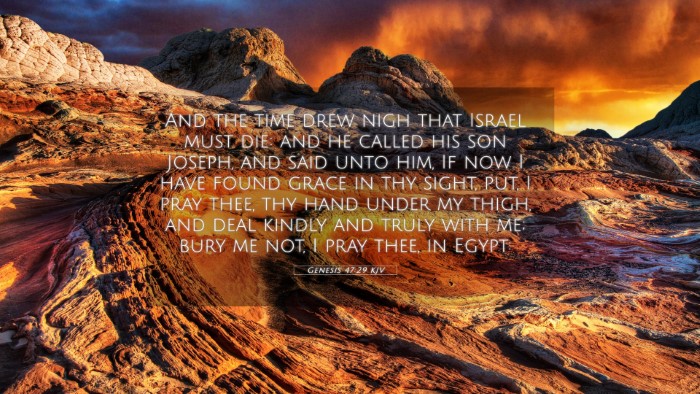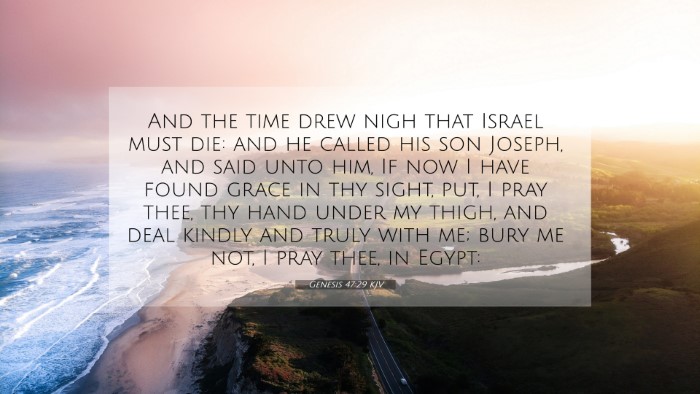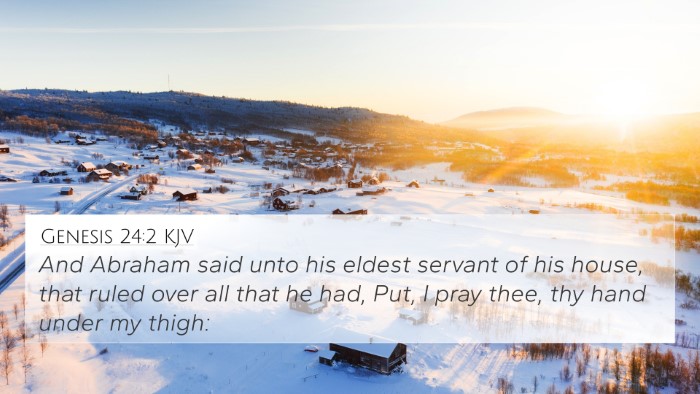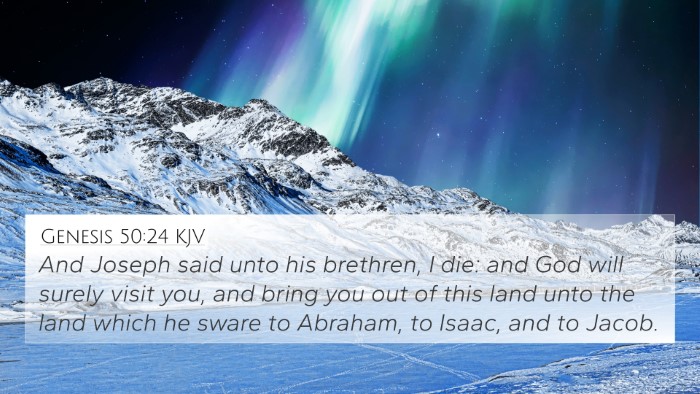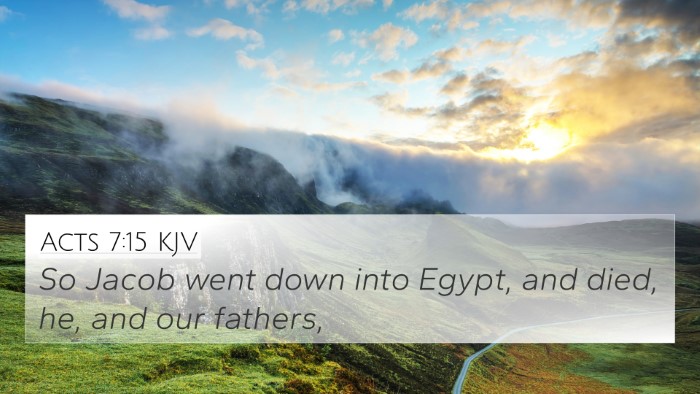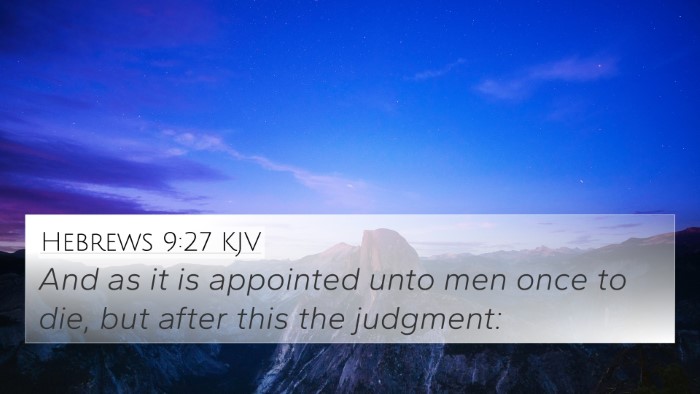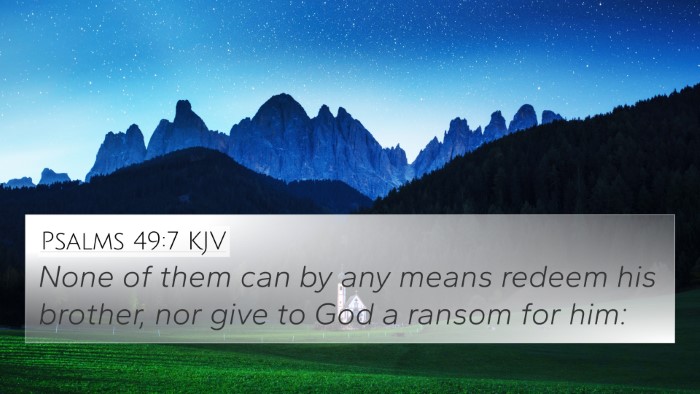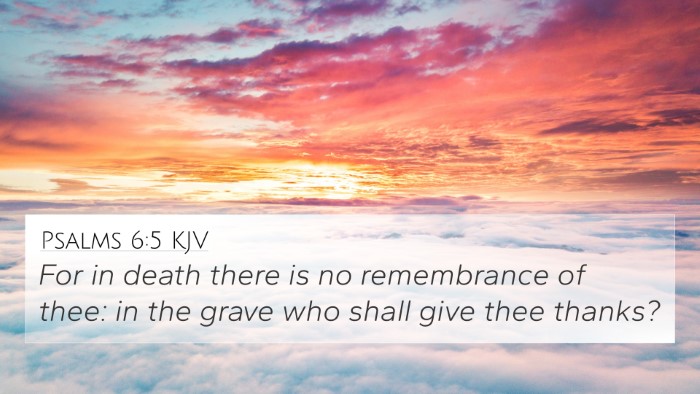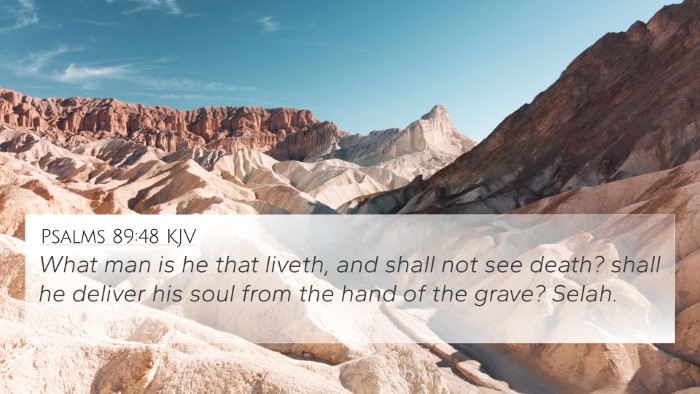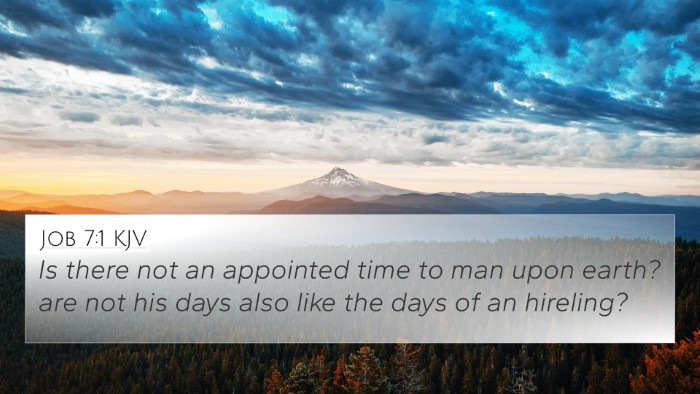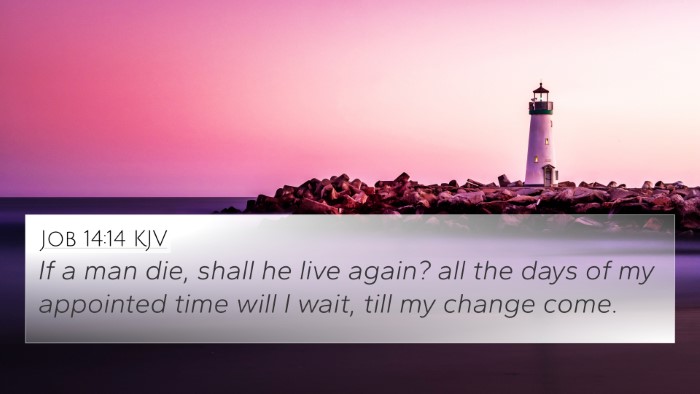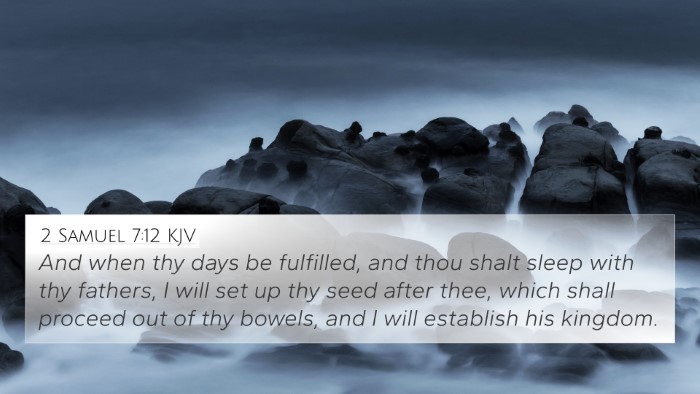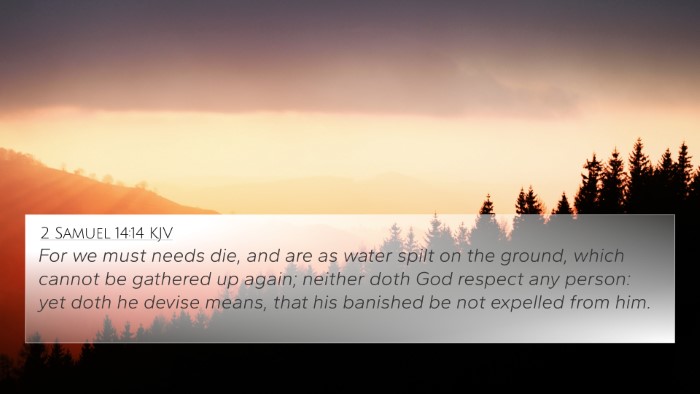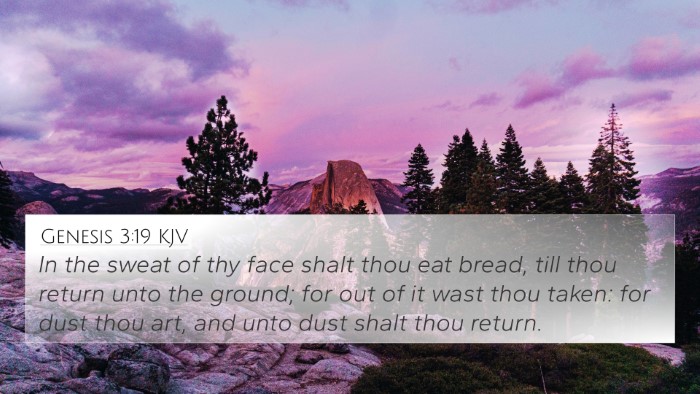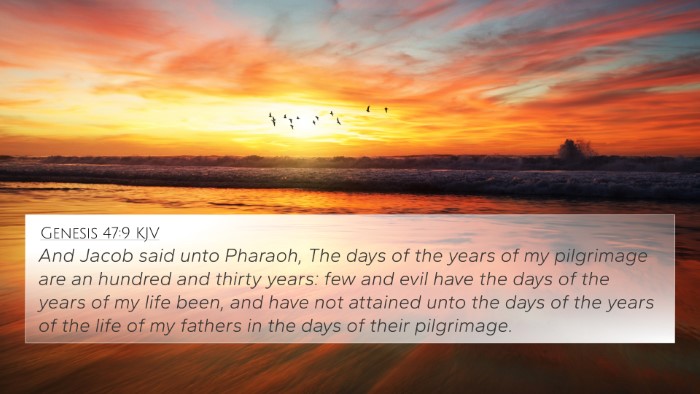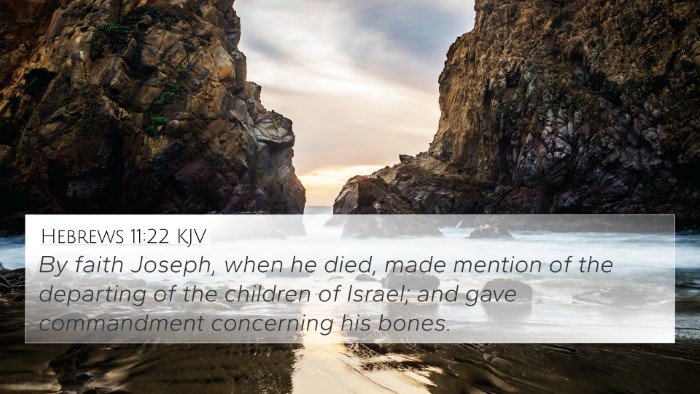Understanding Genesis 47:29
Verse: Genesis 47:29 - "And when the time drew nigh that Israel must die, he called his son Joseph and said unto him, If now I have found grace in thy sight, put, I pray thee, thy hand under my thigh, and deal kindly and truly with me; bury me not, I pray thee, in Egypt."
Summary of Insights from Commentaries
This verse is a poignant moment in the narrative of Jacob (Israel) as he prepares to face his death. The act of calling Joseph and making him swear an oath signifies trust and the importance of family loyalty and promises, particularly regarding burial customs.
Matthew Henry's Commentary
Matthew Henry emphasizes the emotional gravity of this moment. Jacob, feeling his life is nearing its end, desires to return to the land promised to his forefathers. This reflects Jacob's faith in God's promises regarding Canaan, the land of inheritance. The request not to be buried in Egypt signifies a deep longing for connection with his heritage and a declaration of faith that God would eventually bring his descendants back to the land.
Albert Barnes' Commentary
Albert Barnes highlights Jacob's age and the sense of urgency in his request. He points out the significance of putting a hand under the thigh as an ancient custom symbolizing a serious oath. This act underscores the importance of fulfilling familial duties and maintaining one's covenant with God, showing that Jacob's concern was not just for himself but also for future generations.
Adam Clarke's Commentary
Adam Clarke elaborates on the cultural context of this pledge. He notes that Jacob seeks Joseph's promise to bury him in the land of Canaan rather than in Egypt, highlighting the significance of Canaan as the land of promise to the Israelites. This act serves as a reminder of the covenant between God and His people, signifying that God's promises endure even beyond death.
Cross-References Related to Genesis 47:29
- Genesis 23:4 - Abraham’s purchase of the cave of Machpelah as a burial site.
- Genesis 50:24-25 - Joseph's own request for his bones to be taken back to Canaan upon his death.
- Exodus 13:19 - Moses taking Joseph’s bones with him when leaving Egypt.
- Hebrews 11:22 - By faith, Joseph gave instructions concerning his bones, demonstrating his faith in God’s promises.
- Deuteronomy 34:4 - The Lord showing Moses the Promised Land but not allowing him to enter.
- Genesis 12:1 - God's call to Abraham to leave his country and go to a land He would show him, establishing the theme of land promise.
- Genesis 15:13-14 - God's promise to Abraham regarding his descendants being strangers in a land not theirs for 400 years, affirming the future return to Canaan.
- Genesis 48:21 - Jacob’s assurance of God's presence with his descendants and their return to Canaan.
- Psalm 37:29 - The righteous shall inherit the land and dwell therein forever, reflecting God's covenant promise.
- Romans 4:13 - Paul's reference to Abraham’s promise of land to his offspring, illustrating the enduring nature of God’s promises.
Thematic Connections and Interpretations
Genesis 47:29 can be seen as a thematic bridge between the Old Testament and New Testament concepts of promise, faith, and covenant. The language of burial and ancestry connects deeply with the identities of God's people in both testaments.
Old Testament Themes
This verse embodies the themes of longing for the Promised Land, the importance of family bonds, and the seriousness of oaths. Jacob’s insistence reflects significant cultural practices related to burial and heritage in the ancient Near Eastern context.
New Testament Connections
New Testament teachings often revisit the themes of faith, promise, and fulfillment of God's covenant. Hebrews 11:22, which reflects on Joseph’s intentions for his burial, serves as a direct link that illustrates the faith of patriarchs concerning God’s covenant promises extending beyond their death.
Tools for Bible Cross-Referencing
For those eager to study this verse in a deeper context, various tools can facilitate this process:
- Bible Concordance: Helps locate specific words and verses throughout the Bible.
- Cross-Reference Bible Study: Guides readers through related texts that shed light on key themes.
- Bible Cross-Reference Guide: A compiled resource to find connections easily between verses.
- Bible Reference Resources: Books and online tools providing thematic connections.
- Bible Chain References: Linking verses that support each other thematically, allowing for comprehensive study.
Conclusion
Genesis 47:29 is much more than a simple request; it profoundly expresses faith, hope, and a longing for continuity in God's promises. Through cross-referencing and thematic connections, we gain a deeper understanding of Jacob's intentions, the significance of Canaan, and the sustaining power of God's covenant throughout generations. In our study of Scripture, recognizing these links enriches our understanding and encourages us to reflect on the faithfulness of God.
